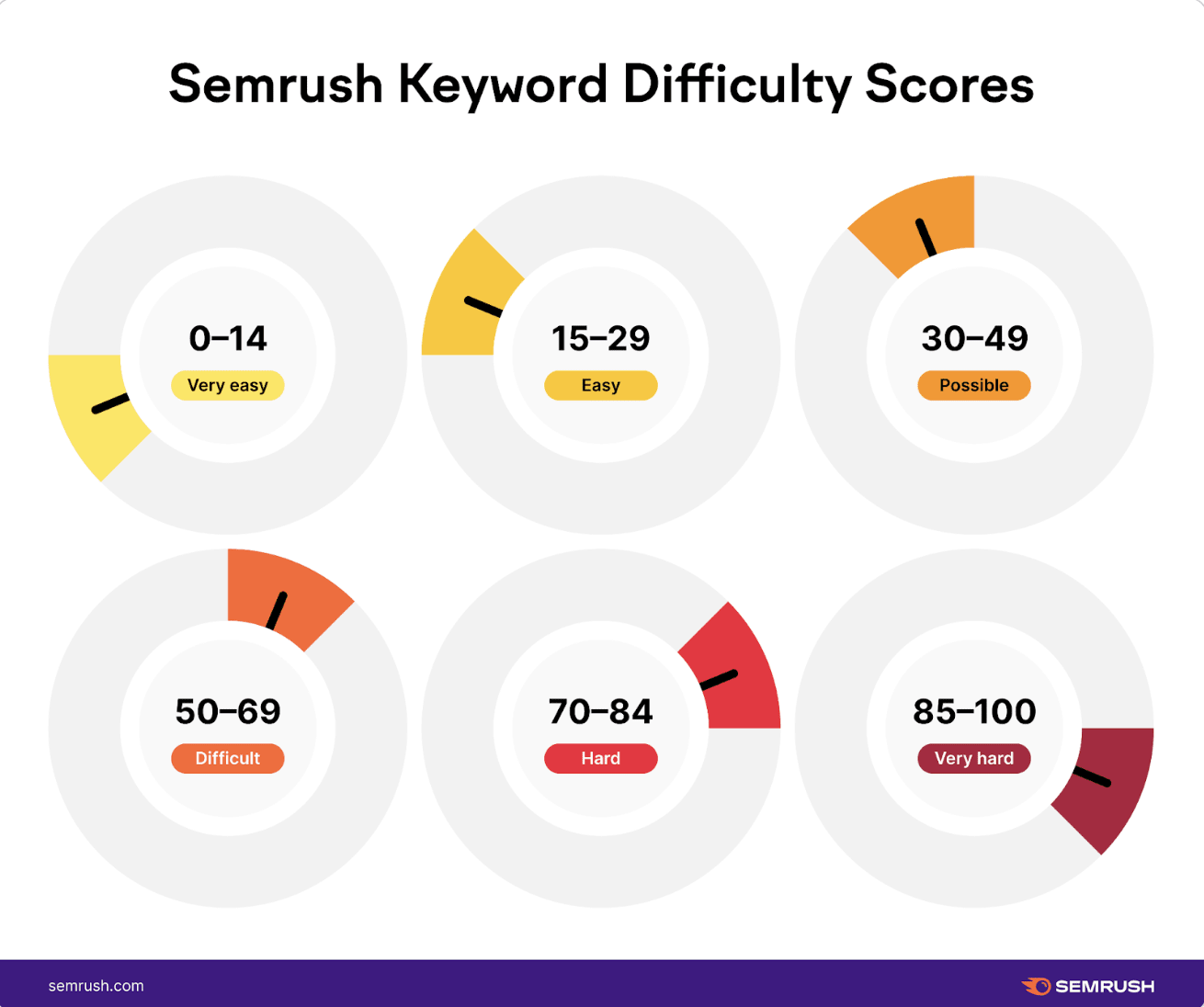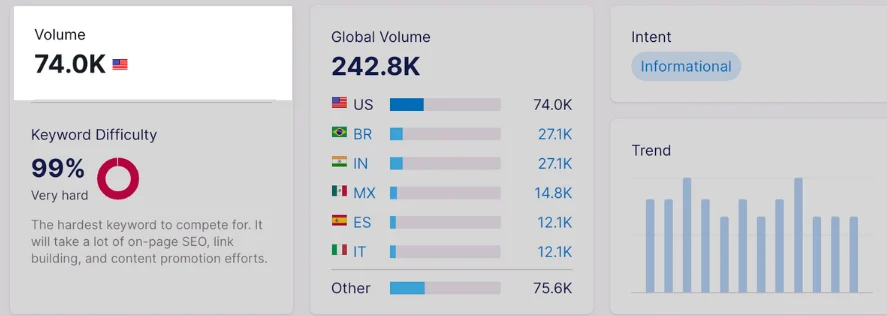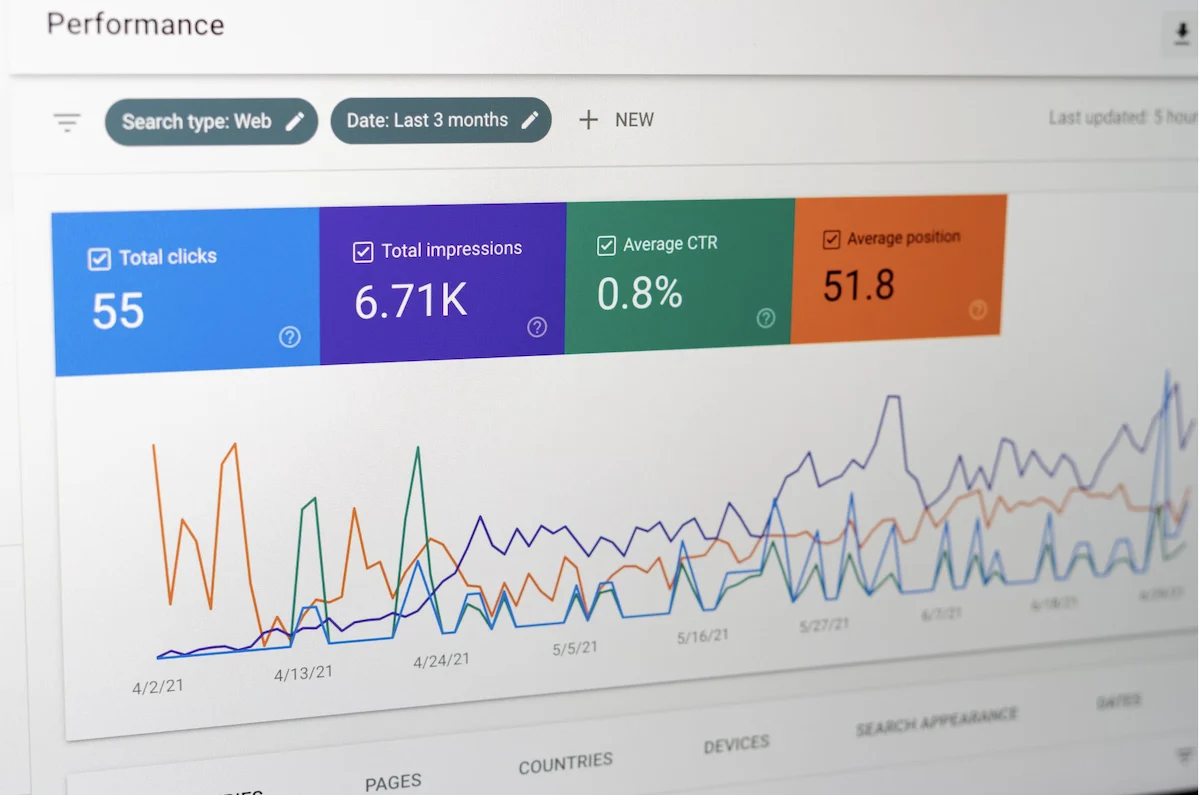Ecommerce keyword research is an essential part of any successful search engine optimization (SEO) strategy. Optimizing your ecommerce site for the right keywords can help boost traffic and drive conversion.
Of course, keyword research is only one aspect of ecommerce SEO (which we took a closer look at in our last blog post). Ultimately, it’s all part of the larger goal of increasing the visibility of your site on search engine results pages (SERPs), against the backdrop of a “noisy” ecommerce landscape.
In this article, we’ll show you how to do keyword research for ecommerce so that you can target the right keywords that will put your brand on the map.
Why ecommerce keyword research is important?
For one, the effectiveness of many aspects of your SEO strategy hinges on your ability to target the right keywords.
From on-page SEO to content marketing, your optimization efforts will largely surround incorporating relevant keywords into your site pages. After all, keywords function as an indicator of a page’s content, as well as its relevance and value to both search engines and people alike.
Therefore, finding the right keywords is crucial—a process that requires a thorough understanding of your brand, products and target audience, as well as their search behaviour.
Ecommerce Keyword Research Terms to Understand
Keyword Difficulty
Refers to how competitive or difficult it is to rank for a particular keyword. This helps determine how easy or hard it will be to rank for that keyword. You can evaluate keyword difficulty using keyword research tools.

Search Volume
The number of searches per month for a particular keyword. Search volume indicates demand and relevance.
To determine the search volume of a keyword, you can utilize various keyword research tools available online. These tools provide insights into the average monthly search volume for specific keywords, allowing you to gauge the potential popularity and demand for those keywords.

Search Intent
The reason behind a user's search query. There are typically three types of search intent: informational, navigational, transactional, and commercial
Competition
The level of competition from other ecommerce sites targeting the same keywords. You should assess which competitors are ranking for the keywords you want to target.
How To Do Keyword Research For Ecommerce
Keyword research plays a vital role in driving organic traffic to your ecommerce website and increasing your brand's visibility. To help you effectively conduct keyword research for ecommerce, we have outlined five essential steps below:
1. Define Your Goals and Target Audience
Begin by clarifying your objectives and identifying your target audience. Understand the demographics, interests, and preferences of your potential customers. This knowledge will guide your keyword selection process, enabling you to tailor your content to their needs.
2. Brainstorm relevant keywords for ecommerce
You’d want to cast your net wide and consider as many keywords as possible. But where should you start? One way is to use your existing ecommerce site to gather keyword ideas.
- Map product pages to keywords
Begin with a list of all your product and category pages. If you’ve yet to launch your ecommerce site, try using a competitor’s, ideally one that’s similar in size to your brand.
Going down the list, map keywords to each of these pages. For ecommerce sites with a large number of product pages, this can be a time-consuming process. You can speed this up by optimizing for your most important pages (e.g. highest conversion rate, highest revenue) first.
As you go about this, aim to identify both primary keywords (i.e. more generic keywords), as well as more specific, product-focused keywords. Looking at the top organic keywords for each page might give you a better idea.
3. Consider search intent
Another way to start brainstorming for keywords is to put yourself in the shoes of your target audience and think of what search terms they might use when looking for your products. Search intent is an indicator of the user’s purpose behind a search query. For the uninitiated, this article by Yoast serves as a good introduction to search intent and SEO.
- Informational: This type of search intent is when users are looking for information or answers to their questions. They are seeking knowledge or understanding on a particular topic. For example, someone searching for "how to tie a tie" is likely looking for step-by-step instructions or a tutorial.
- Transactional: When users have a transactional intent, they are actively looking to make a purchase or engage in a specific action. They are ready to buy or complete a transaction. For instance, someone searching for "buy red running shoes" is likely ready to make a purchase and wants to find a suitable product.
- Navigational: Navigational intent occurs when users are searching for a specific website or web page. They already have a destination in mind and want to find the direct path to it. For example, someone searching for "Facebook login" is specifically looking for the login page of Facebook.
- Commercial: Commercial intent is closely related to transactional intent, but it focuses more on the research phase of the buying process. Users with commercial intent are looking for information about products, comparisons, reviews, and deals before making a purchase decision. For instance, someone searching for "best DSLR cameras under $1000" is likely in the market for a camera and wants to gather information before making a buying decision.
Understanding the different search intents is crucial for effective keyword research in ecommerce. When it comes to ecommerce, you’d want to focus on keywords with a transactional or commercial intent. This would allow you to target people who are either looking to buy something or in the process of researching for their ideal purchase.
More specifically, consider tailoring your product pages to keywords with a transactional intent. You can incorporate commercial intent keywords into your ecommerce site by featuring them in blog posts, such as round-up articles.
Remember, search intent can vary depending on your niche and target audience. It's important to analyze and adapt your keyword strategy accordingly, ensuring that you provide the right content and solutions to meet user needs.
4. Select keywords with high search volume and low ranking difficulty
One of the challenges of selecting keywords lies in striking a balance between a high search volume and low ranking difficulty.
Search volume is typically a measure of the average number of monthly searches for a given keyword. Therefore, a higher search volume suggests more potential traffic to your ecommerce site should you rank well on the SERPs.
On the other hand, ranking difficulty (also known as keyword difficulty) is an indicator of how hard it is to seize a top spot on the SERP. If your ecommerce site is just starting out, it may be overly ambitious of you to target a highly competitive keyword for which you may have almost no change of ranking for.
More often than not, long-tail keywords offer a good balance between the two—they are far more specific and easier to rank for. While they may have a lower search volume, they tend to see more conversions since people searching for a specific product are likely have a higher intent to purchase.
For instance, in the clothing niche, relevant keywords related to specific styles, brands or seasons may have a lower search volume but see higher conversion rates. On the other end of the spectrum, broad keywords like "clothes" will have an enormous search volume but ranking for them is extremely difficult.
It’s important to bear in mind that there’s no one ideal benchmark for search volume and keyword difficulty—these are very much dependent on your niche, as well as the tool you use. You’d need to figure out what works best for your ecommerce site.
5. Do Competitor Research
In order for you to stand a chance against the competition, you need to have a good understanding of the keywords they’re ranking for. The best way to achieve this is to perform a keyword gap analysis, which would help to shed light on keyword opportunities for your ecommerce site.
By looking at the keywords your competitors are ranking for, you can get a sense of the keywords that are most important to your industry or niche. In fact, it might allow you to discover keywords you may not have already considered.
If your competitors are ranking for keywords that you aren’t, make sure to include those that have a substantial search volume—but only if they align with your brand and products. In particular, you’d want to focus on long-tail keywords as they present the biggest opportunities for ranking.
6. Monitor and Update Your Keywords
Keyword research is an ongoing process. Regularly monitor the performance of your selected keywords and make adjustments as needed. Keep an eye on changes in search trends, new market developments, and shifts in your target audience's behavior. By staying up-to-date and adapting your keyword strategy accordingly, you can maintain a competitive edge in the ecommerce landscape.
Adding keywords to your ecommerce site
Now that you’ve shortlisted both your primary and long-tail keywords, you’d have a better idea of what your niche is. The next step would be to start building your brand’s authority in this specific area.
There are a few things to consider when incorporating these keywords into your ecommerce site.
For a start, you’d need think of where it’s best to add each keyword. For example, it may be easier to build content around a question-based keyword like “how to pick the best wireless earbuds” through a blog post.
For other types of keywords, you can also try adding them into your product descriptions so that these products will appear on the search engine when your targetted users search for them.
Having done your competitor research, you’d also have a rough gauge of the optimal number of keywords to include within each page. Then there’s also the challenge of how to include them in your copy elegantly—you’re writing for humans, not search engines after all. Always write with your target audience in mind, but make sure to keep track of your keywords as you go.
Avoid keyword stuffing at all cost. Ultimately, you’d want to make sure your content remains valuable and relevant to your target audience. Your content should never stray from your brand and all that it stands for at the expense of SEO.
Bonus: Ecommerce Keyword Research Tools that You Can Use
In order to optimize your ecommerce site and improve your keyword strategy, it's essential to leverage the right tools. Here are some highly effective keyword research tools that can help you achieve your goals:
Google Keyword Planner
Google Keyword Planner, you can help you discover new keywords and get accurate search volume data. This tool allows you to identify popular keywords relevant to your ecommerce business, helping you understand what your potential customers are searching for. By incorporating these keywords into your website content, you can increase your chances of appearing in search engine results and attracting organic traffic.
Google Search Console

Google Search Console is another essential tool for ecommerce owners. It provides valuable information about how your website is performing in search results. By analyzing the data provided by Google Search Console, you can identify keyword trends, monitor your website's visibility, and optimize your online store accordingly. This tool also helps you identify and fix any technical issues that might be affecting your website's ranking.
SEMrush
SEMrush is a comprehensive SEO tool that offers a wide range of features to help ecommerce owners succeed in the competitive online market. With SEMrush, you can conduct in-depth keyword research, analyze your competitors' strategies, and track your website's performance over time. This tool provides valuable insights into your competitors' keywords, backlinks, and advertising strategies, allowing you to stay ahead of the game and make informed decisions to improve your ecommerce business.
Ahrefs
Ahrefs is another powerful keyword research tool that offers a wealth of data and insights for ecommerce owners. It allows you to analyze your competitors' keywords, backlinks, and content, helping you understand what strategies are working for them. By leveraging the information provided by Ahrefs, you can identify new keyword opportunities, optimize your website's content, and improve your search engine rankings.
Conclusion
When it comes to ecommerce keyword research, having the right tools crucial. With the advancement of technology, AI-powered solutions like Hypotenuse AI have emerged as game-changers in the world of digital marketing. This cutting-edge tool offers a range of features that can significantly enhance your keyword research process and help you achieve your ecommerce goals.
Remember, effective keyword research is an ongoing process that requires continuous effort and adaptation. As consumer behavior and search engine algorithms evolve, it is essential to stay proactive and regularly reassess your keyword strategy. By staying ahead of the curve and leveraging the right tools and techniques, you can position your ecommerce business for long-term success in the online marketplace.
Now, your job is to incorporate these steps into your existing workflow and figure out what works best for your ecommerce site.






.webp)